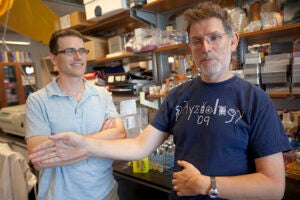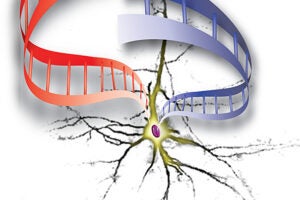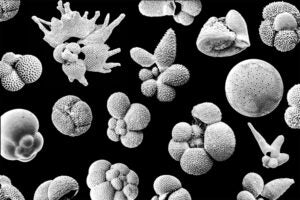Tag: molecular and cellular biology
-
Nation & World
Funding innovation
Nine researchers from across Harvard have received more than $15 million in special National Institutes of Health (NIH) grants designed to foster innovative research with the potential to propel fields forward and speed the translation of research into improved public health.

-
Nation & World
Strength in numbers
Harvard researchers have created an analogue of what they think the first multicellular cooperation might have looked like, showing that yeast cells — in an environment that requires them to work for their food — grow and reproduce better in multicellular clumps than singly.

-
Nation & World
Three researchers named Runyon Fellows
The Damon Runyon Cancer Research Foundation, a nonprofit organization focused on supporting innovative early career researchers, has named 18 new Damon Runyon Fellows, including three from Harvard.
-
Nation & World
Ramanathan honored as Pew Scholar
Harvard University’s Sharad Ramanathan, assistant professor of molecular and cellular biology, has been named a Pew Scholar in the Biomedical Sciences.

-
Nation & World
Making an art of science
Graduating senior Kevin Shee threw himself into Harvard’s dance scene after arriving as a freshman, but he leaves after nourishing a second love — science — that will take him to a research career after graduation.

-
Nation & World
Kidney close-up
Scientists at Harvard have created breathtaking three-dimensional images of an entire organ, moving a step closer to understanding the complex development of the kidney.

-
Nation & World
The nose knows
Harvard researchers have shed light on how the sense of smell works to induce behavior, linking patterns of electrical spikes in the brain to behavior in laboratory animals.

-
Nation & World
Throwing a genetic switch
Study finds that maternal genes in mice predominate in the developing brain, while paternal genes gain the upper hand in adulthood. Researchers also find 1,300 imprinted genes in the brain, far more than previously known.

-
Nation & World
The art of science
Susan Mango, professor of molecular and cellular biology and MacArthur award winner, brings her unorthodox approach to research.



